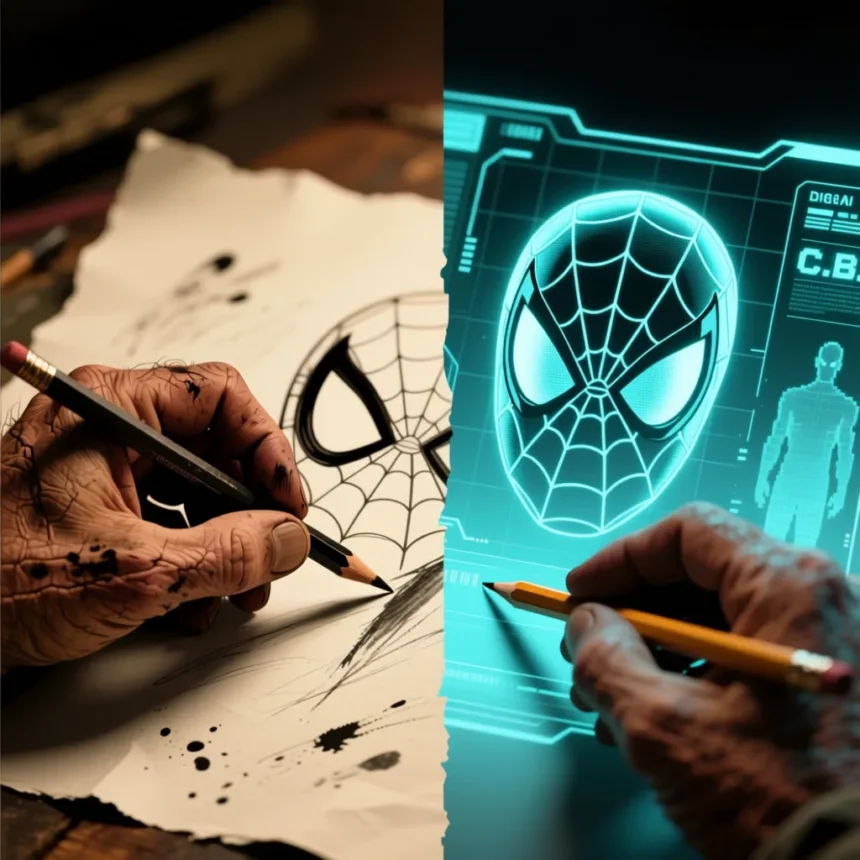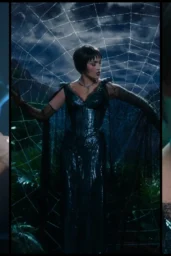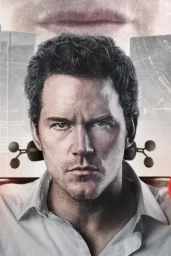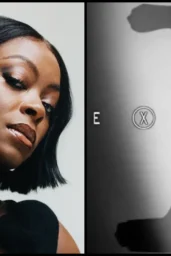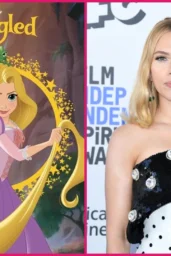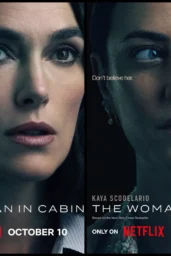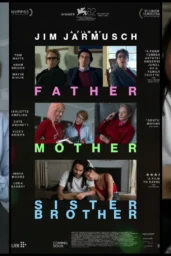The debate over artificial intelligence in the creative industries has stopped being theoretical and started costing people work—and intellectual property. Yesterday, DC Comics President, Publisher, and CCO Jim Lee made a definitive public stand against A.I. generated storytelling or artwork, declaring it will be kept out of the company’s output “Not now, not ever.” Lee framed the rejection as a philosophical commitment to the “fragile, beautiful connection between imagination and emotion” that only human effort can provide. He’s not wrong. When you lose the smudge and the rough line, you lose the artist.
The industry quickly pivoted its gaze to the other half of the Big Two, Marvel Comics, where the stance has, until now, felt slightly less—shall we say—heroic. Marvel’s use of A.I. in the titles for the Secret Invasion TV series felt like a toe dipped in the water, and Executive Editor Tom Brevoort, in his private capacity, had mused on the inevitability of the technology. The machine changes the world, whether we want it to or not, he argued. A fair point, if slightly resigned.
Cebulski Confirms Marvel Comics’ Zero-Tolerance Stance
Today, the ambiguity ended. During the ‘Spider-Man and his Venomous Friends’ panel at New York Comic Con—which took place on Thursday, October 9, 2025, in Room 405—Marvel Editor-in-Chief C.B. Cebulski was asked directly about the publisher’s policy.
Cebulski confirmed, without preamble, that the Marvel Comics division has a zero-tolerance policy. They have never used A.I. for their comic book art, they “go to lengths to detect it,” and they have severed ties with artists caught using it in their submissions. Crucially, he specified this policy applies only to the Comics division, leaving the door open for film and television, which has already experimented with the tech.
The distinction is everything. Lee’s statement was a heartfelt defense of authenticity, stating that A.I. “doesn’t dream. It doesn’t feel. It doesn’t make art. It aggregates it.” That’s the poetry. The prose, however, is a far more cynical, though necessary, concern: ownership.
The Real Fight: Public Domain vs. IP Control
As industry watchers know, the core issue for both major publishers is less about the purity of the pencil line and more about the iron grip of Intellectual Property (IP). If it were to be definitively proven in court that a published work was generated by A.I.—a technology that, as of now, often relies on scraping uncompensated and uncredited human work—the work could be deemed public domain.
This is the kind of existential threat that makes a Hollywood executive sweat through their bespoke suit. Marvel and DC Comics exist to create, exploit, and control their stable of characters. The legal risk of not owning the very lines that define Spider-Man’s mask or Batman’s cowl is simply too great to ignore, no matter how cheap the labor gets. The philosophical stance on human creativity is a noble front, but the true foundation of this policy is a very expensive contract—and the need to keep their assets private. The human element, it turns out, is the essential legal firewall.
It’s worth noting the Ultimate Universe, a best-selling line for the publisher, is scheduled to end in April 2026 with the conclusion of Ultimate Endgame. It feels like a subtle, almost poetic full stop on a major chapter, perhaps paving the way for a future less complicated by competing corporate realities—or maybe it’s just the end of a story that needed one.
Snapshot: Marvel Comics AI Stance
Marvel Comics has drawn a line in the sand—driven by both authenticity and, more importantly, intellectual property law.
Official Marvel Comics Policy
- Zero Use: Marvel Comics has never used A.I. in their published work.
- Enforcement: They actively detect and cut ties with any comic artist found using A.I. in submissions.
The Core Conflict
- DC’s Moral Stand (Jim Lee): “AI doesn’t dream. It doesn’t feel. It doesn’t make art. It aggregates it.”
- The IP Reality: If published comic work is proven to be A.I.-generated, the copyright ownership could be compromised, potentially shifting the art into the public domain. This ownership risk is the most powerful deterrent for the Big Two.
The MCU Exception
- TV/Film: Marvel Studios has previously utilized A.I. for visual effects (e.g., the opening titles of Secret Invasion), indicating that the anti-AI stance is currently ring-fenced to the Comics division only.
❓ Critical Q&A on the AI Divide
Q: Is this policy truly about creative integrity or pure corporate risk management? A: It’s an uneasy marriage of both. The official stance is couched in the language of respecting human creativity, which is authentic and necessary. However, the non-negotiable reality is that a compromised copyright is an existential threat, making the defense of their IP the definitive, non-negotiable driver.
Q: Does Marvel’s TV/Film usage of A.I. undermine the Comics’ policy? A: Absolutely. The divide highlights a corporate double standard: the Comics division sells a physical, collectible product where the artist’s hand-drawn gesture is prized and legally critical. The visual effects in a streaming series, while visible, do not carry the same core intellectual property risk or historical fan expectation of singular authorship.
Q: What is the most significant takeaway from Jim Lee’s “aggregates” quote? A: The quote is a razor-sharp critical point. It reframes the technological capability of generative A.I. not as creation, but as highly efficient, soulless aggregation of existing work. It’s a dismissal that neatly summarizes why, for true art, you can’t fake emotional resonance. And God knows they try.

